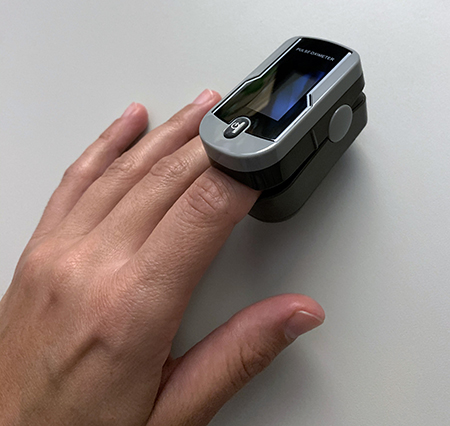

A research study from the Cardiac Arrythmia Network of Canada (CANet) and Lawson Health Research Institute is testing the use of a new online patient care platform designed to help track symptoms for COVID-19 positive patients.
Patients are now being enrolled in the study from the Urgent COVID-19 Care Clinic at London Health Sciences Centre. This virtual clinic helps identify, triage, monitor and manage potential complications for people recovering from COVID-19 at home. Patients can self-monitor their health with ongoing access to virtual physician support.
The COVID-19 Virtual Care at Home research study is testing the use of VIRTUES (Virtual Integrated Reliable Transformative User-Driven E-health System), a virtual, patient-centred platform created by CANet to help guide COVID-19 positive patients in managing their illness. They will have remote access to a team of health care providers including those specialized in the fields of cardiology, emergency medicine, internal medicine, infectious disease, neurology and respirology.

As symptoms are logged and tracked, there are alerts for communication between the patient and members of the care team. They can react quickly if additional care is needed such as a visit to the doctor’s office or hospital.
“The COVID-19 pandemic has highlighted the need for effective virtual health care,” says Dr. Anthony Tang, CANet CEO and Scientific Director. “Technology solutions support this care by giving both patients and health care providers fast and accurate access to critical information about symptom progression.”
As a made-in-Canada solution, CANet partnered with Clearbridge Mobile, an application development company in Toronto, to adapt an existing virtual care platform. “We responded quickly to provide a way for health care providers to remotely monitor, triage and manage care for patients with COVID-19, and help identify early on those who are at higher risk of complications,” adds Dr. Tang. Before the pandemic, VIRTUES was used for remote monitoring and care for patients with implantable cardiac defibrillators and pacemakers.
“We want to learn more about making health care technology user-friendly. Patients will have more information about their care and hopefully will experience reduced anxiety,” explains project co-lead Dr. Erin Spicer, LHSC physician and Lawson Associate Scientist. “While the majority of COVID-19 cases don’t require hospitalization, this system allows us to more closely monitor a patient’s progress and make informed decisions if their symptoms worsen.”
This research project highlights the importance of collaborative effort. Most importantly, with patient partners' active participation in helping design the VIRTUES platform and this research project. Along with CANet’s investment to adapt the VIRTUES platform for this project, the Department of Medicine at Western University’s Schulich School of Medicine & Dentistry has provided active support with many sub-specialists and investments from the Centre of Quality, Innovation and Safety (CQuinS) program.
“I am proud to be associated with this vital initiative. This research project will be comforting for patients contracted with COVID-19, providing reassurance that they are cared for by experts and monitored with technology advancement.” Dr. James Calvin, citywide Chair/Chief of Medicine.
The research team explains that these types of remote care systems may be able to play an important role in stemming the spread of the virus, while providing high-quality, accessible care using fewer resources. It also provides a means of rapid and accurate tracking of case recovery.
“We want to keep people safe. Following evaluation of VIRTUES here in London, we hope to see it implemented across the province and beyond. Patients have access to enhanced care while being able to hopefully stay in their homes during their recovery, helping to decrease exposure of COVID-19 in the community and for frontline health care workers,” adds Dr. Tang.